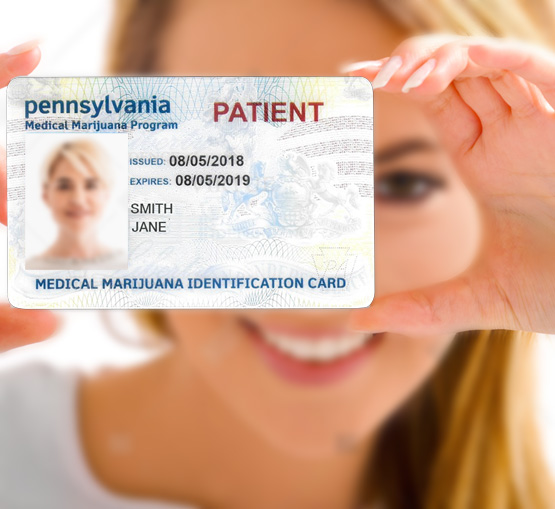
The Possibility of Securing a Medical Marijuana Card Without an Official Diagnosis
The process of acquiring a medical marijuana card typically necessitates a prescription from a certified doctor. Nevertheless, those lacking a diagnosis or medical documentation might wonder about the feasibility of obtaining a medical card without an officially recognized condition. In this piece, we’ll explore the process in-depth and provide insights on how to maneuver through it successfully.
Obtaining a Medical Card Despite the Absence of a Condition
Though the process might not be straightforward, it is indeed achievable to secure a medical card even without an officially recognized condition. Every state that has a medical cannabis program also has a specific set of qualifying conditions. However, this list varies considerably across states, and in some instances, it is deliberately kept vague to allow some degree of interpretation.
Examining Various States’ Policies on Medical Marijuana
California: As of 2023, California boasts some of the most lenient laws concerning medical marijuana usage in the U.S. The state’s Compassionate Use Act enables doctors to endorse marijuana for any ailment they believe it could relieve, not just those outlined in the state’s official list of qualifying conditions.
Virginia: Virginia also has a fairly inclusive list of qualifying conditions. It allows the usage of medical marijuana for any diagnosed condition or treatment whose symptoms could be alleviated through the use of medical marijuana, as determined by the certifying medical professional.
Oklahoma: Interestingly, Oklahoma does not maintain a specific list of qualifying conditions, but rather allows doctors to use their judgement when recommending medical marijuana.
Missouri: Missouri does have a precise list of qualifying conditions, but it also allows doctors to recommend medical marijuana for other chronic or debilitating conditions.
The Four Key Symptoms to Obtain a Medical Card Without a Condition
If you are in search of relief via medical marijuana but lack a specific qualifying condition, don’t despair. There are four primary symptoms that many individuals experience at different times in their lives: pain, anxiety, stress disorder, and insomnia. If these symptoms are chronic and substantially impact your life, seeking relief through medical cannabis could be a viable option.
Common Ailments Eligible for a Medical Marijuana Card
Pain: Pain is one of the most common conditions that could make you eligible for a medical marijuana card. If you’re experiencing persistent pain and looking for a treatment option without adverse effects, medical marijuana may provide the answer.
Anxiety: Anxiety can affect anyone at any point in their lives. Medical marijuana offers immediate short-term effects on anxiety and depression, making it a potential treatment.
Insomnia: Insomnia is a prevalent sleep disorder experienced by many. Medical cannabis has proven to be an effective remedy for treating insomnia, offering a calming and soothing effect to facilitate better sleep.
PTSD: Post-traumatic stress disorder (PTSD) is a mental health condition caused by trauma. Medical marijuana has shown promise in providing relief for PTSD, reducing anxiety and promoting a sense of calm.
How to Obtain a Medical Card Without a Recognized Condition
You may qualify for a medical marijuana card due to a variety of medical situations. These could include social anxiety, depression, panic attacks, or chronic pain in various areas. Regardless of your situation, you must be prepared to discuss it in detail to convince a compassionate cannabis doctor that you genuinely need the medical card. Highlighting the negative impact of these symptoms on your life can considerably support your case.
Concluding Thoughts
Obtaining a medical marijuana card without a specific condition may require some additional effort, but with the right approach, it is possible. Advocating for yourself, explaining the impact of your condition on your life, expressing concerns about traditional medications, and acknowledging limited access to healthcare are all crucial to making a strong case. Always consult with a healthcare professional or a 420-friendly doctor before beginning any new treatment regimen.
The Right Way to Discuss Your Symptoms with a Doctor
When discussing your symptoms with a doctor, it is critical to be transparent, detailed, and articulate about your experiences. Be prepared to explain how your symptoms are affecting your quality of life and why you believe medical marijuana could be beneficial to you.
Taking the Right Steps Post-Diagnosis
Once you’ve received your medical marijuana card, it’s vital to know how to use your medicine responsibly. Be aware that what works for one person may not work for another due to different strains and methods of consumption. Always start with a low dose and gradually increase it until you find what works best for you.
Exploring Different Medical Marijuana Strains
Different strains of medical marijuana have varying effects. Indica strains, for example, are typically used for pain relief and are more likely to make you sleepy, making them suitable for nighttime use. On the other hand, Sativa strains can be more energizing and are often used to alleviate anxiety or depression. It’s important to try different strains under the guidance of a healthcare professional to identify what works best for you.
Legal Considerations Surrounding Medical Marijuana
Even with a medical card, you must remember to abide by the laws in your state regarding the use of medical marijuana. Always ensure that you are using, storing, and transporting your medication legally to avoid potential legal issues.
Closing Remarks
Remember, the journey towards obtaining a medical marijuana card without a recognized condition might be challenging, but it is achievable. With persistence, honesty, and effective communication, you can navigate this process successfully. It’s all about advocating for your wellbeing and finding the best treatment options to improve your quality of life. Always consult with a healthcare professional to ensure you’re making the best decisions for your health and well-being.
Source: https://dr-weedy.com/how-to-get-a-medical-card-without-a-condition/


























